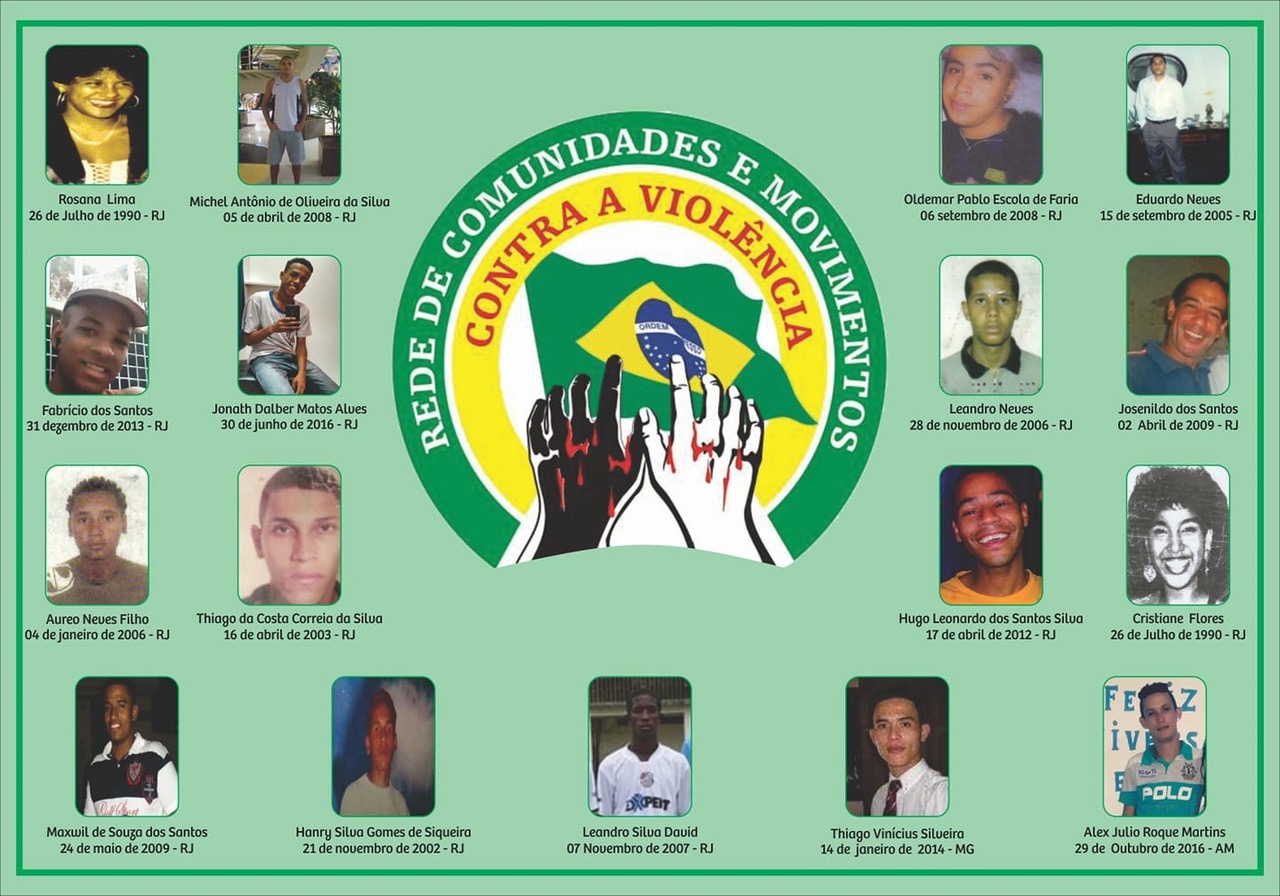
The Network of Communities and Movements Against Violence is an independent social movement that brings together the struggles of communities and social movements against state violence, police arbitrariness and impunity. According to information from the Atlas of Violence 2017, out of every 100 people murdered in Brazil, 71 are Black, and Black people have a 23.5% higher chance of being murdered than Brazilians of other racial groups, independent of the effects of age, schooling, sex, marital status and neighbourhood of residence.
The Network emerged in 2003, when four massacres took place in various locations in the state of Rio de Janeiro, all carried out by the military police. The participants in the Network are mostly Black women, residents of favelas in Rio de Janeiro and mothers of victims of violence. Currently 18 women are actively involved in the movement, but the Network has a register of 60 family members who have contributed to the movement. Being an active member means attending meetings at the organization's headquarters, participating in activities promoted by the Network, and also supporting each other in the judicial hearings around cases of violence. The network also has various supporters, a category that includes students, researchers and other activists who support and assist the Network's actions, but are not relatives of victims of violence.
The policy agenda of the Network includes denouncing the genocide of the Black population through police violence; the myth of the drug war and associated mass incarceration, which mainly victimize young Black men; the criminalization of poverty and of the protests of the poor; racism in the criminal justice system; and the bad treatment of family members of victims of violence within the criminal justice system.
The movement's strategies include encouraging the denunciation of police violence by means of meetings, workshops and meetings with residents of favelas; public demonstrations in the city centre that challenge the apparent naturalness of violent deaths in favelas; dialogue with deputies, councillors and NGOs to raise the profile of their agenda in government circles; producing reports on police tactics with data collected by residents; partnership with the Public Defender of Rio to act on cases reported by the Network; legal and psychological support to family members. The Network's fight against racism in the criminal justice system also has impact through collective participation in judicial hearings.
